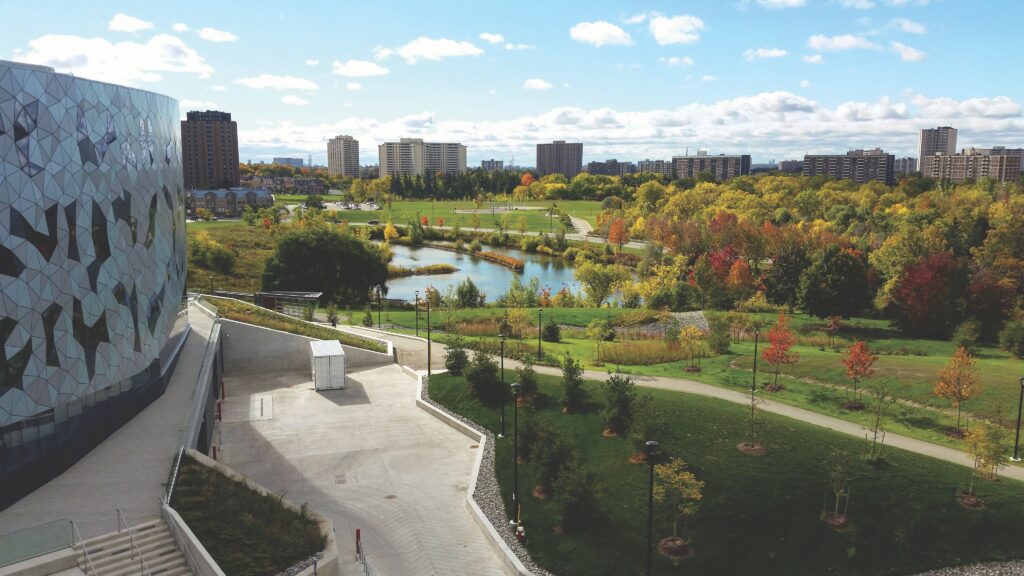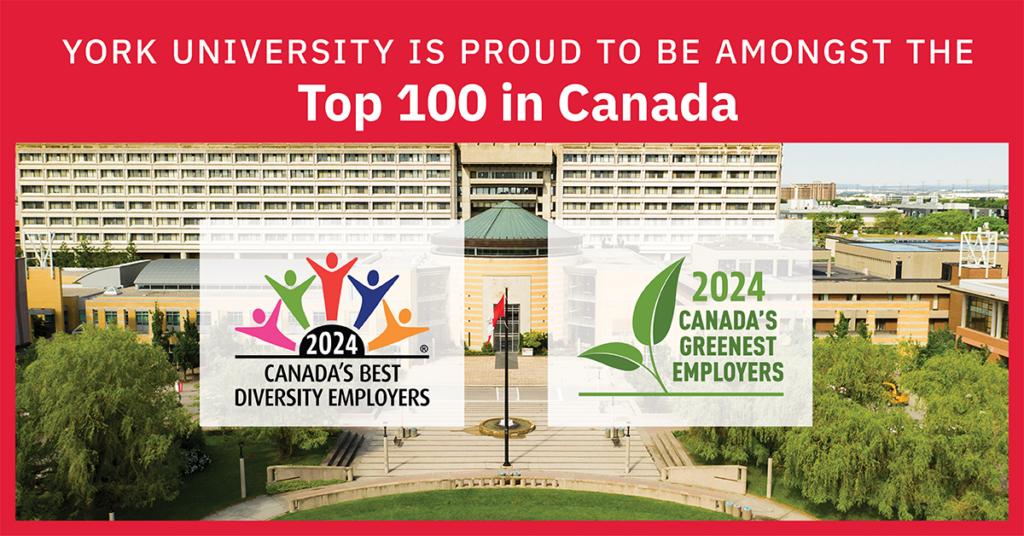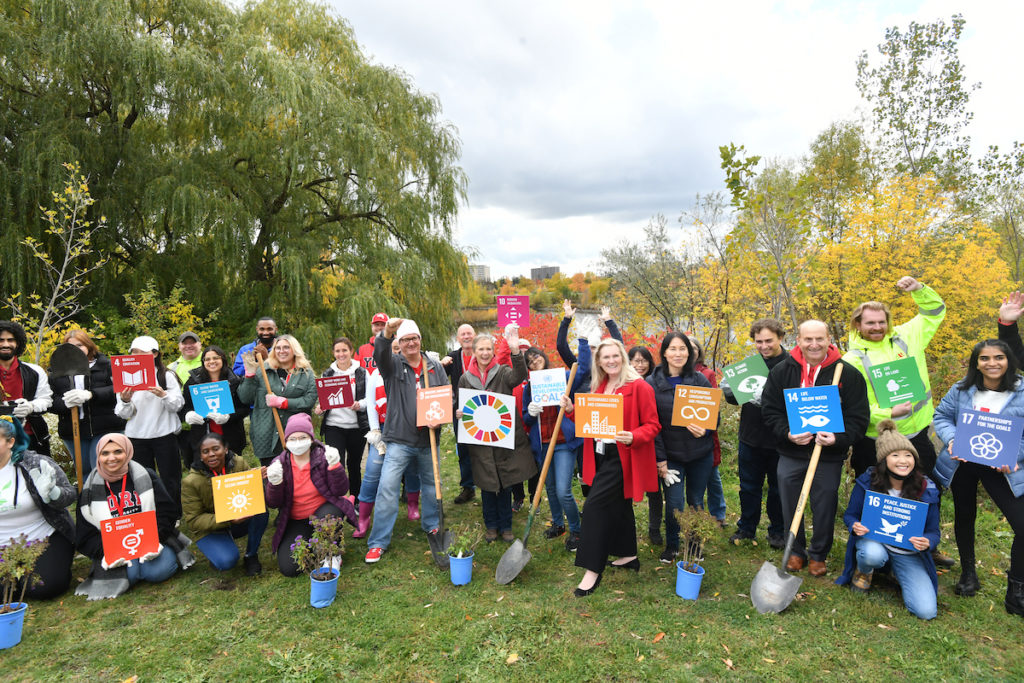
Our Plan to Create a Sustainable Future
York University has long been recognized as an international leader in sustainability-relevant research, teaching, partnerships, and campus practices. By challenging ourselves to deepen this work, and to track and report on our contributions, we reaffirm our longstanding York values of social justice, equity, sustainability, and excellence in all that we do.
York is building on its strong foundation to become one of the most sustainable institutions in Canada. We plan to create a sustainable future by aiming to achieve net-zero emissions by 2040.
Creating a sustainable future starts now and it starts with us.
Are you up for the challenge?
Why is sustainability important?
During the Earth Month 2023 tree planting event at the Keele Campus, we asked volunteers, from students to staff, about the importance of sustainability within our everyday lives.
What are you doing to be more sustainable?
From preventing the use of single-use plastics to taking transit, the York community is creating positive change towards a more sustainable world.
Find your way around our sustainable campuses!

The Glendon and Keele campuses at York University feature a wide array of sustainability features.
Check out the interactive map for more information.

2024 Canada’s Best Diversity Employers and Canada’s Greenest Employers
York University’s outstanding progress in sustainability earns it the distinction of being one of Canada’s Greenest Employers for the 12th consecutive year, and Canada’s Best Diversity Employers 2024, a first for the University.
York University continues to strengthen its position as a leader in creating a more sustainable and inclusive world, ranking among the world’s top 35 universities for advancing the United Nations Sustainable Development Goals (SDGs), as revealed in the 2024 Times Higher Education (THE) Impact Rankings.
There is no more pressing global priority than the need to embrace a more sustainable way of living. Through our teaching, our research and our own practices, York University has contributed substantially to our understanding of sustainability best practices which are as much about what we do as what we are purposely choosing not to do.
— Rhonda Lenton, President and Vice-Chancellor

A University-Wide Challenge
Our University Academic Plan 2020-2025 (UAP), included a university-wide challenge to elevate York’s contributions to the United Nation’s 17 Sustainable Development Goals (SDGs).
Sustainability Updates at York U
- York University Libraries is doing its part to advance experiential education with peer mentoring, capstone projects and placement opportunities. The post York University Libraries empowers students to tackle real-world challenges appeared first on YFile.
- York University community members are invited to nominate individuals for the King Charles III Coronation Medal in recognition of outstanding contributions to communities in the areas of: service, the environment and sustainability, and the nation’s diversity. The post Call for nominations: King Charles III Coronation Medal appeared first on YFile.
- Mark Terry, a professor in York University’s Faculty of Environmental & Urban Change, has been recognized with the prestigious J. Robert Cox Award for Environmental Communication and Civic Engagement. He is the first recipient outside the U.S. to ever receive it. The post York U prof pioneers climate communication, wins international award appeared first on […]
- A screening of Plastic People hosted by York University will include a recognition of the University being designated a Blue Community by the sustainability-oriented Council of Canadians. The post Microplastics documentary screening offers chance to recognize York as a clean water leader appeared first on YFile.
LAND ACKNOWLEDGEMENT
Watch this video to understand York’s Land Acknowledgement.
York University acknowledges its presence on the traditional territory of many Indigenous Nations. The area known as Tkaronto has been care taken by the Anishinabek Nation, the Haudenosaunee Confederacy, the Huron-Wendat, and the Métis. It is now home to many Indigenous Peoples. We acknowledge the current treaty holders, the Mississaugas of the Credit First Nation. This territory is subject of the Dish With One Spoon Wampum Belt Covenant, an agreement to peaceably share and care for the Great Lakes region.
We also understand that Indigenous peoples around the world have important knowledge about how to live sustainably:
Sophisticated knowledge of the natural world is not confined to science. Human societies all across the globe have developed rich sets of experiences and explanations relating to the environments they live in. These ‘other knowledge systems’ are today often referred to as traditional ecological knowledge or Indigenous or local knowledge. They encompass the sophisticated arrays of information, understandings and interpretations that guide human societies around the globe in their innumerable interactions with the natural milieu. comprehensive research-intensive institution, York University is home to a proud tradition of scholarship and the pursuit of discovery and innovation.

